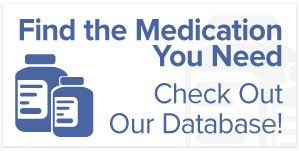We need all sorts of medications in our daily life. Some for chronic health conditions like blood pressure or diabetes, while others are for headaches, colds, and other sporadic health concerns.
The former fall into the category of prescriptions, while the latter tend to be available and accessible over-the-counter—i.e., they do not require a doctor’s prescription or recommendation.
The differences between prescription medications and OTCs may seem complicated, but it’s simpler than you’d think. Here’s what you need to know:
Prescriptions also require a doctor’s note for use
You generally can’t walk into any convenience store or drugstore and grab prescription medication off the shelf. You will undoubtedly require a doctor’s note and approval, including dosage and other details.
OTC medications do not require such specifics, but can be used by anyone who needs them. You can ask for recommendations at the local pharmacy, or if you know what you need, you can get them yourself too.
OTC drugs aren’t as strictly regulated by the FDA
While still regulated and checked for safety, OTC drugs aren’t as strictly monitored by the FDA as prescription drugs are. Prescription manufacturers must test, examine, and prove that their drugs are safe and effective for their intended users, among other detailed reports and regulations.
Prescriptions are filled based on a number of days
Most people can walk into a grocery store and buy several packs of generic painkillers and OTC medications, but will not be able to purchase prescription medication as easily.
In fact, their prescription will have to state the number of days it’s for, and doctors must approve that too. You can get prescriptions for up to 90 days at a time, but you will need to have them refilled to ensure they’re being used safely and correctly.
Prescriptions are intended for a particular person
OTC medications are available in convenience and corner stores and grocery stores because they’re safe to take for everyone unless specific circumstances dictate otherwise.
Prescriptions are meant for a specific individual or target demographic, i.e., someone who needs it. Even two people with the same condition can’t share medications because doses and other variables are necessary to factor in.
We’re more than available to help you with your prescriptions and managing medications. You can enroll with us for a fixed monthly fee that guarantees discounted medications, prescriptions, and more. Contact us for details on our prescription assistance program and affordable medication programs, and cost of service.




